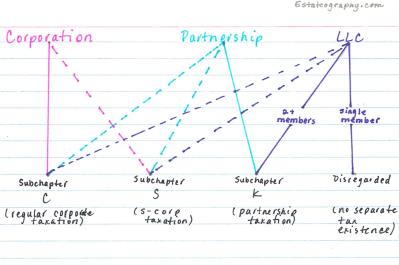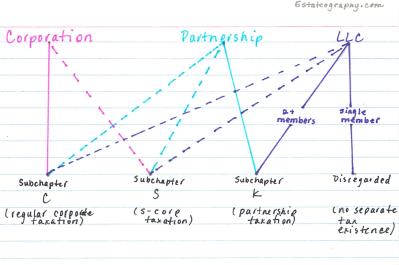Choosing a Business Entity: S-Corp vs. LLC?

When you form a business, you have two choices to make: you have to choose a state law entity and you have to choose a tax status. The world of state law entities is largely, but not entirely, separate from the world of tax status. In reality, these two choices are usually made together--the state law entity you choose will limit (but not necessarily dictate!) your tax options.
Choosing a State Law Entity##
There are a variety of factors business owners should consider in making this decision.
Different states allow different types of entities. In Virginia, the usual business forms are Corporations (stock and nonstock), General Partnerships, Limited Partnerships, Limited Liability Partnerships, and Limited Liability Companies. Each type of entity is subject to different state laws. These laws affect how much asset protection the owners will have, what the initial and annual compliance requirements and fees will be, and (to some extent--see below) how the business will be taxed, among other things. There's no "best" type of entity: the choice of an entity depends on the needs and goals of the owners and the business.
Choosing a Tax Status##
Here's a chart showing how state law entities usually match up with tax status. The solid green lines show the default classification, and the dashed green lines show what the business can theoretically opt into. The chart shows the rules that apply in many--but not all--cases. There are certain types of partnerships that have to be taxed as corporations, for example.

Where might one find the official rules for entity status?
The rules about the different entity types are in state law. Virginia's State Corporation Commission website has useful information about Virginia business entities. The rules about tax status are in the tax code.
